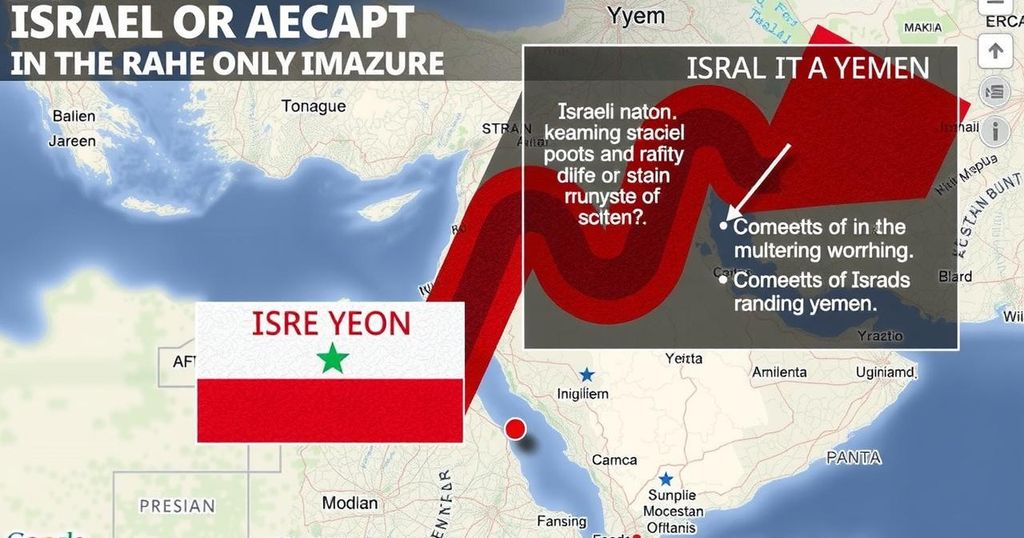Escalating Hostilities: The Impact of Israeli Attacks on Yemen

Israel’s recent military actions in Yemen have targeted key infrastructures, prompting missile retaliation from the Houthis toward Tel Aviv. Prime Minister Netanyahu has threatened further strikes, indicating a dangerous escalation in hostilities that could destabilize the region further. The ongoing conflict in Yemen reflects larger geopolitical tensions involving Iran and its allies.
The recent Israeli bombardments in Yemen, targeting vital infrastructure such as the main airport and port city, have heightened regional tensions considerably. Israeli Prime Minister Benjamin Netanyahu has indicated that further military actions are anticipated. In retaliation, the Houthi movement has launched missiles towards Tel Aviv, showcasing an escalation of hostilities between the two factions. The ongoing violence raises significant concerns regarding stability in the Middle East and the potential ramifications for international relations, suggestive of a broader conflict involving various state and non-state actors in the region.
The conflict in Yemen, which has been ongoing since 2014, has drawn in multiple regional players, including Saudi Arabia, Iran, and now, Israel. Israel’s involvement in Yemen is relatively new and appears to be correlated with its broader geopolitical strategies against Iranian influence in the region. The Houthi movement, supported by Iran, has been actively defending Yemen against what they perceive as foreign aggression. These latest developments highlight the intricate web of alliances and enmities that characterize the Middle Eastern geopolitics, particularly as tensions rise between Iran and Israel.
In conclusion, the escalation of Israeli attacks on Yemen, coupled with retaliatory actions from the Houthis, signals a worrying trend for peace and security in the region. With both sides escalating military action, the implications for Yemen’s stability, the regional balance of power, and international intervention efforts are profound. The potential for a wider conflict warrants close observation from global leaders and policymakers.
Original Source: www.aljazeera.com








